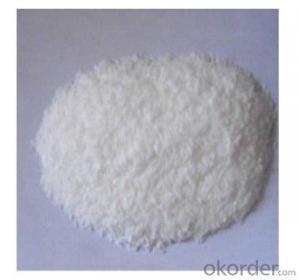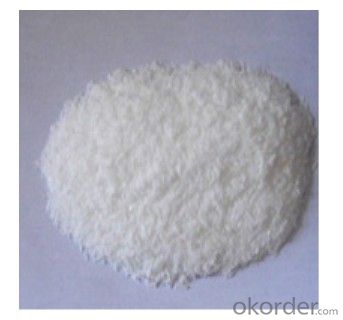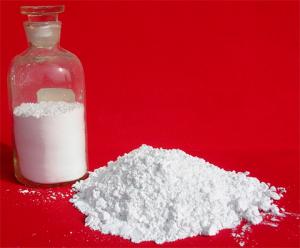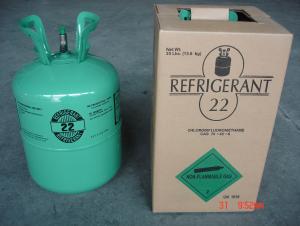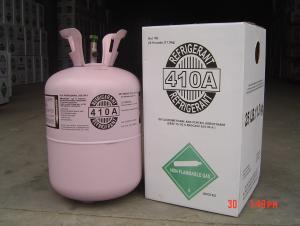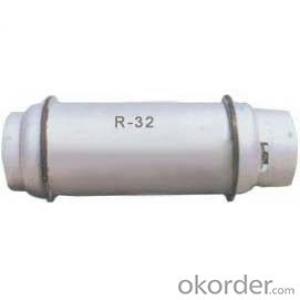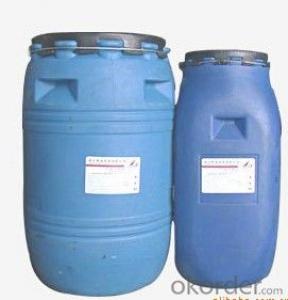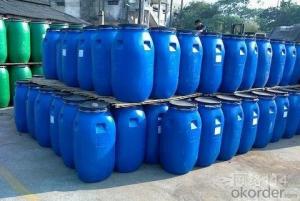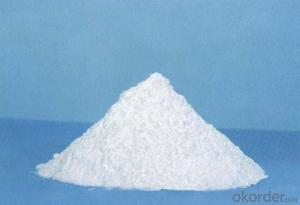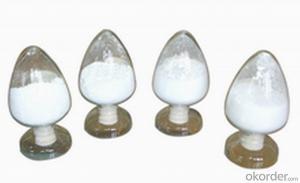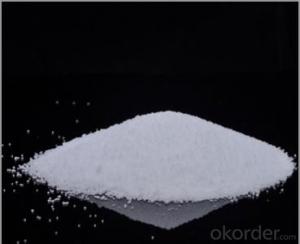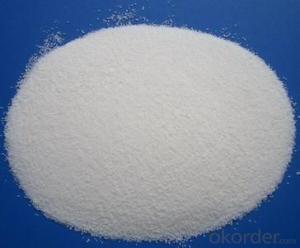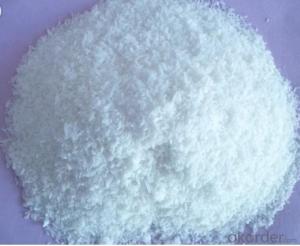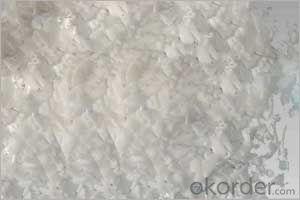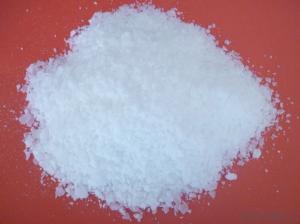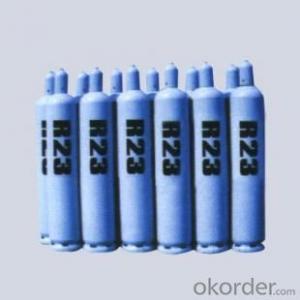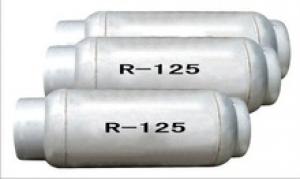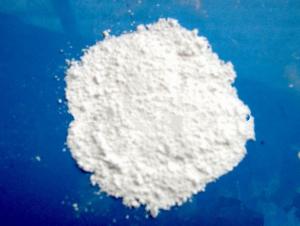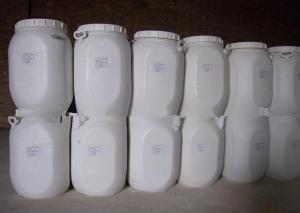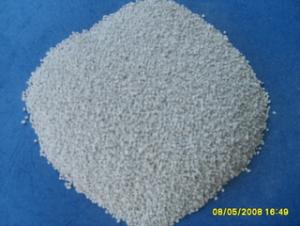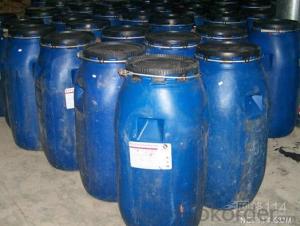Stearic Acid SA1800
- Loading Port:
- Tianjin
- Payment Terms:
- TT OR LC
- Min Order Qty:
- -
- Supply Capability:
- 8000MT/month m.t./month
OKorder Service Pledge
OKorder Financial Service
You Might Also Like
Stearic acid
Formula: C18H36O2
Structural Formula:CH3(CH2)16COOH
Product Description:
Shaped like Lump, flake; Saturated fatty acid mainly with C16 and C18, white flake solid at ambient temperature, not dissolved in water, slightly dissolved in benzene and carbon bisulfide, and easily dissolved in hot alcohol. No smell no poison. It has the general chemical properties of organic carboxylic acid.
Physicochemical Properties:
pure product is white with a shiny soft small pieces, melting point 69.6 degrees, the boiling point of 376.1 degrees. Relative density 0.9408, refractive index 1.4299, slowly volatile in the 90-100 degrees. Slightly soluble in cold water, soluble in alcohol, acetone, soluble in benzene, chloroform, ethyl ether, carbon tetrachloride, carbon disulfide, toluene and so on.
Specification:
Item | Index | |||||
Grade No. | 1842 | 1838 | 1820 | 1860 | 1870 | 1880 |
Iodine value gI2/100g ≤ | ≤5.0 | ≤5.0 | ≤5.0 | ≤6.0 | ≤7.0 | ≤8.0 |
Saponification value mgKOH/g | 206~211 | 206-213 | 214-216 | 193-220 | 193-220 | 192-218 |
Acid value mgKOH/g | 208~210 | 210~211.5 | 214-225 | 182-218 | 192-218 | 193-220 |
Chroma (Hazen) ≤ | ≤60 | ≤80 | ≤100 | 200-400 | ≤150 | 400 |
Freezing point °C | 54~57 | 54~57 | 55~57 | 54 | 52 | 52 |
Moisture % ≤ | ≤0.2 | ≤0.2 | ≤0.2 | ≤0.3 | ≤0.3 | ≤0.3 |
Inorganic acid % ≤ | 0.001 | 0.001 | 0.001 | 0.001 | 0.001 | 0.001 |
Suggest Uses:
Mainly for the production of stearic acid salts: Widely used system for cosmetics, plastic cold-resistant plasticizer, release agent, stabilizer, surfactants, rubber vulcanization accelerator, waterproof agent, polishing agent, metal soap, metal mineral flotation agent, softeners, pharmaceuticals, and other organic chemicals.
In addition, oil-soluble pigments can be used as solvents, crayons transfer slip agent, waxed paper lighting agent, stearic acid glyceride emulsifier, etc..
Packing :25/50kg in PP bag ,25MT/20GP
Product Storage:
in dry warehouse ventilation should be more than 10mm from the ground to avoid damp products in the above-mentioned conditions, from the date of delivery for one year shelf life.
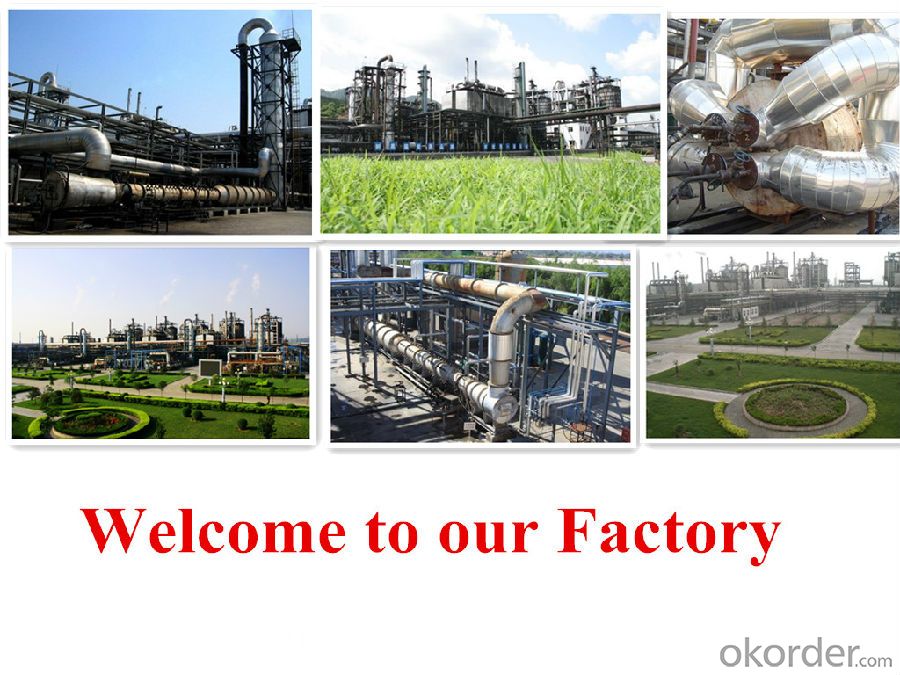

- Q: Compare the difference between London smoke and Los Angeles photochemical smog
- Los Angeles photochemical smog nitrogen content and hydrocarbons and derivatives more, mainly close to the car exhaust. Foggy London situation related to coal, soot solid particles and sulfur oxide more. Foggy London is more bleak, and Los Angeles is more toxic.
- Q: Such as the problem, and how, how to squeeze methane into liquid, or how to squeeze into the liquid gas? It is still very difficult ... there is a dangerous thing .... (this is not important) high reward
- Pentane, g, x, n, decane, to eleven to hexadecane are liquid hydrocarbons. Ethanol is not a hydrocarbon, it is aerobic. Polymeric material is a compound of relatively high molecular weight Composition of the material, there are many, such as rubber, plastic, fiber, paint
- Q: Cracked
- It is almost impossible for this problem to look at your reaction conditions. Generally speaking, the alkane reaction is mainly difficult to decompose directly into ions
- Q: Calcium fatty acid is an organic or inorganic chemical
- Organic chemicals. Most of the carbon compounds in addition to carbon dioxide, carbon monoxide, carbon disulfide, carbonates and other simple carbon compounds are still inorganic substances, the rest are organic matter.
- Q: What is a derivative?
- Derivative refers to a complex compound in the hydrogen atoms or atomic groups replaced by other atoms or atomic groups derived more complex products.
- Q: What kind of carbohydrates?
- carbohydrate: common with sucrose, maltose, lactose in the diet mainly in the form of starch, dextrin and glycogen in the form of sugar in the two sugar from a molecule of glucose and a molecule of fructose Is the most commonly used additive in sweets, pastries and beverages, and sucrose is essentially free of other nutrients in addition to the supply of maltose, which consists of two molecules of fructose, consisting of one molecule of glucose and one molecule of galactose.
- Q: Is the carboxylic acid derivative and the substituted carboxylic acid the same concept?
- Carboxylic acid derivatives mainly include: 1. Esters 2. Acyl halides such as acetyl chloride: CH3-COCl3. Acids such as acetic anhydride: (CH3CO) 2O4. Amides such as acetamide: CH3CONH2
- Q: Carbon compounds (except inorganic carbon compounds), hydrocarbons and derivatives of the general term is?
- Hydrocarbon it
- Q: The difference between methanol fuel oil and alcoholized oil
- Change the smart car dual fuel control can be pure methanol and the whole solution
- Q: Such as the title, the personal feeling of chemical transliteration of Chinese transliteration can be done so easy to write, weird name in addition to keep the high point, no good, but rather affect the people's understanding of medicine and memory, contrary to the text to facilitate the exchange of memory Original intention
- The title as a Chinese people are not proud of it Do not let you change the way back? Japanese back a element you a cycle almost finished finished ok Chinese can also sideways back to the back of foreign chemistry can cycle table How much is the back? Chinese people want to back half a day to solve the ok
Send your message to us
Stearic Acid SA1800
- Loading Port:
- Tianjin
- Payment Terms:
- TT OR LC
- Min Order Qty:
- -
- Supply Capability:
- 8000MT/month m.t./month
OKorder Service Pledge
OKorder Financial Service
Similar products
Hot products
Hot Searches
Related keywords
